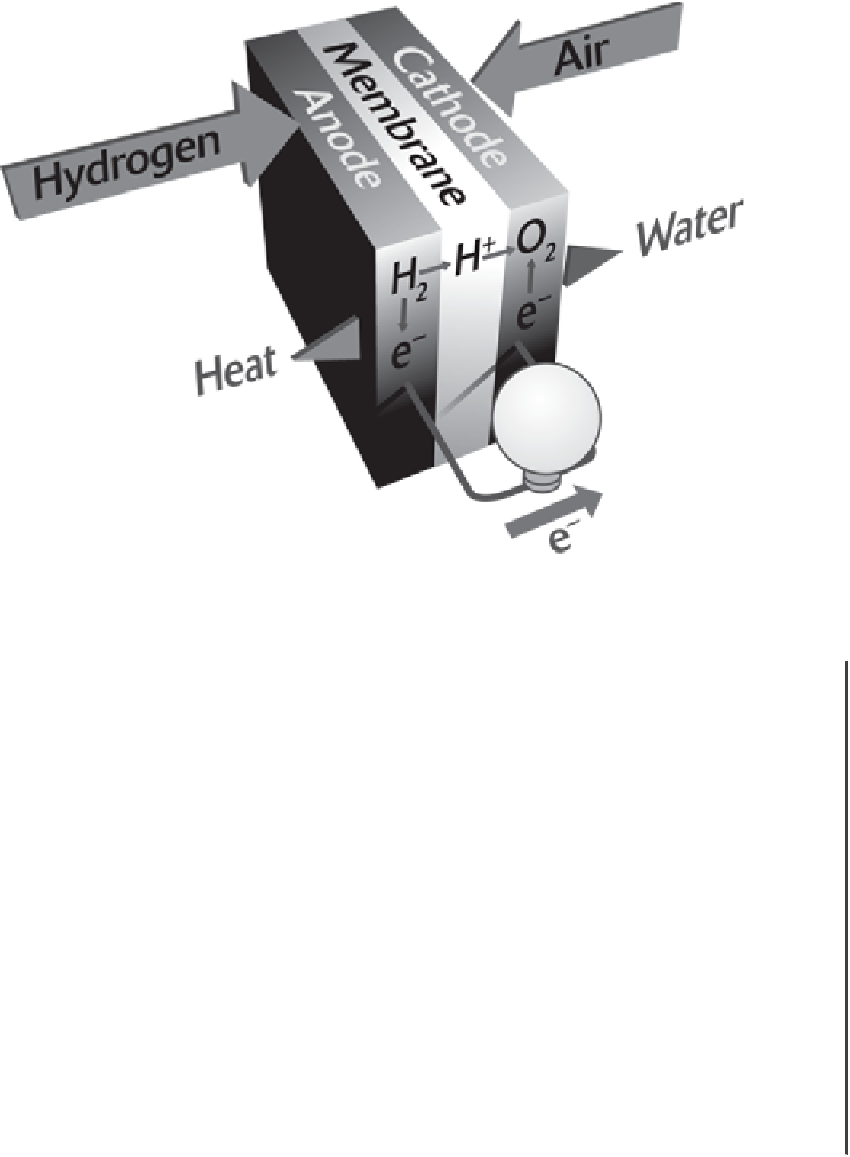Environmental Engineering Reference
In-Depth Information
Source: NASA
Hydrogen Fuel Cells
Advantages
Disadvantages
Hydrogen has three times the energy (pre-mass) of
natural gas.
Hydrogen production is very energy-intensive in order
to separate it from a water molecule.
Hydrogen can be obtained from splitting water. Hy-
drogen is the most abundant element in the uni-
verse.
Hydrogen gas is highly flammable and burns extremely
hot.
The use of hydrogen as a fuel has minimal environ-
mental impact. The only emissions from hydrogen
combustion are water and heat.
An efficient method to store hydrogen has not yet been
developed.
Production may indirectly produce harmful emissions,
depending on what energy source provides the electri-
city to split the water molecule.
Hydrogen can be produced domestically, reducing
dependence on foreign energy supplies.
They are highly efficient (45% to 65%), and the num-
ber may be likely to increase as technology devel-
ops.
There is concern that if hydrogen leaks in the atmo-
sphere, it may deplete the ozone in the stratosphere.
Energy to produce hydrogen could come from nucle-
ar, solar, wind, or another less polluting source of en-
ergy.
Producing the power cell is expensive.











